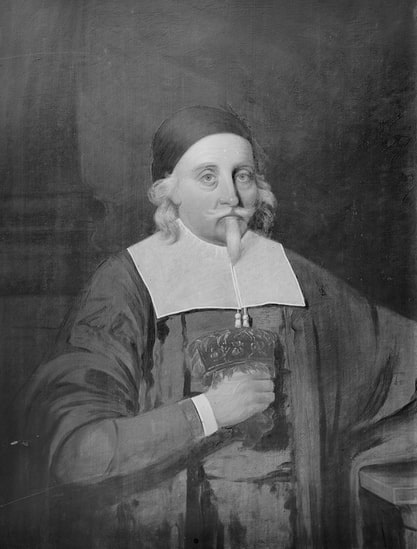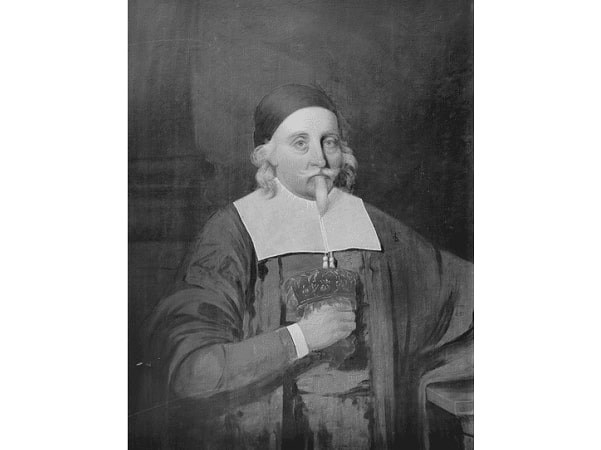Introduction: In this article, Melissa Davenport Berry continues her story about the punishments Quakers endured at the hands of the 17th century Puritan authorities, focusing on Edward Wharton. Melissa is a genealogist who has a blog, AnceStory Archives, and a Facebook group, New England Family Genealogy and History.
The Quaker persecutions during the 17th century inspired writers like Henry Wadsworth Longfellow to expose the harsh treatment the sect received from the Puritan establishment. In 1868 he published two plays in verse called The New England Tragedies – one was about the Salem witch trials, and the other was about the Puritans’ persecution of the Quakers.

The following lines are from “The New England Tragedies: John Endicott Governor of Massachusetts.” Here we have a dialogue between John Endicott, governor of the Massachusetts Bay Colony, and Rev. John Norton, Puritan minister.
NORTON:
Away with all these Heretics and Quakers!
ENDICOTT:
And what more can be done?
NORTON:
The hand that cut
The Red Cross from the colors of the king
Can cut the red heart from this heresy.
Fear not. All blasphemies immediate
And heresies turbulent must be suppressed
By civil power.
Norton is advising Endicott to deal with Quakers with the same zeal and force he mustered when cutting out the red cross of St. George to deface the local militia’s flag. (See: The Story behind an Ancestor’s Unusual Name: Truecross Davenport.)
Longfellow frequented the Sylvester Manor on Shelter Island, New York, during the time Professor Eben Norton Horsford resided there. Horsford and his family erected a monument on behalf of Nathaniel Sylvester, who gave shelter to the persecuted Quakers. (See: Nathaniel Sylvester, ‘Lord of Shelter’ for 17th Century Quakers.)
One of the Quakers listed on the monument is Edward Wharton, “The Much Scourged,” who was a Quaker sentenced to banishment in Longfellow’s play John Endicott.
Wharton and Endicott often locked horns. Both men possessed strong opinions and were highly charged in expressing them.
Old newspaper articles, such as those in GenealogyBank’s Historical Newspaper Archives, reference the repetitive scourging imposed upon Wharton for his religious beliefs.
This article by the Boston Investigator tells how cruelly and repeatedly Wharton was whipped, on Endicott’s orders.
There is a court record about Wharton, dated 4 July 1663, that was published in 1837 by the Newburyport Herald. This report gives more detail to the first lashings sentenced upon Wharton, who had informed the court he came “to bear testimony against violence and oppression” against the Quakers.
The court records report additional punishment for Wharton.
Wharton was given shelter by Thomas Macy of Salisbury during a heavy rainstorm. Macy was charged for this crime. It is suspected that William Robinson and Marmaduke Stephenson were with Wharton. They are listed on the monument at Shelter Island with Mary Dyer – all three were executed on the Boston Common.
In the New-Bedford Mercury, there is a mention of Macy’s incident sheltering Wharton.
Macy was fined and admonished. This incident inspired John Greenleaf Whittier’s work “The Exiles.”
Whittier claimed that the Quakers manifested just as much confrontational zeal as their prosecutors. In a letter dated 14 May 1878, Whitter wrote:
“It may be questioned whether the governor’s [Endicott] ears did not suffer as much under Wharton’s biting sarcasm and ‘free speech’ as the latter’s back did from the magisterial whip.”
Upcoming: more about the Quakers in 17th century America.
Related Articles:
